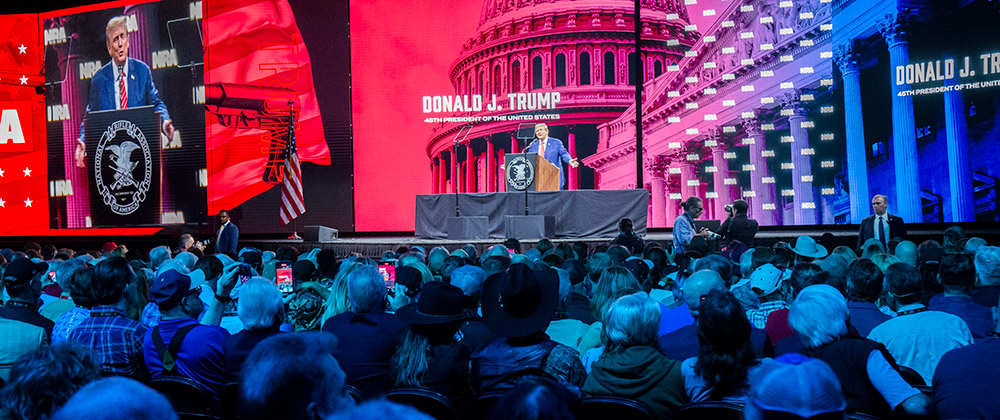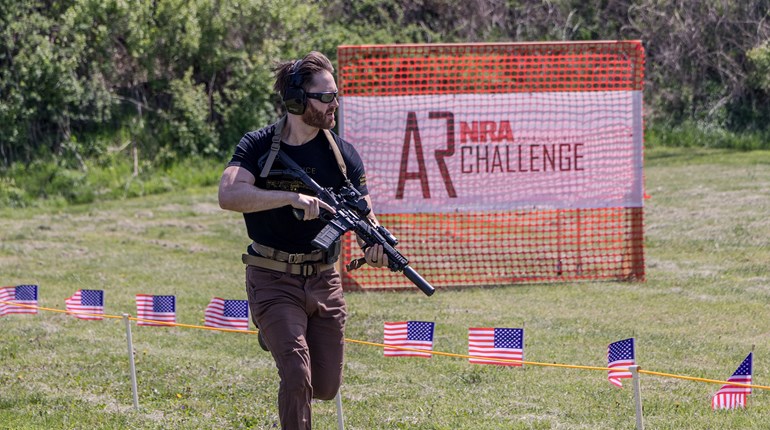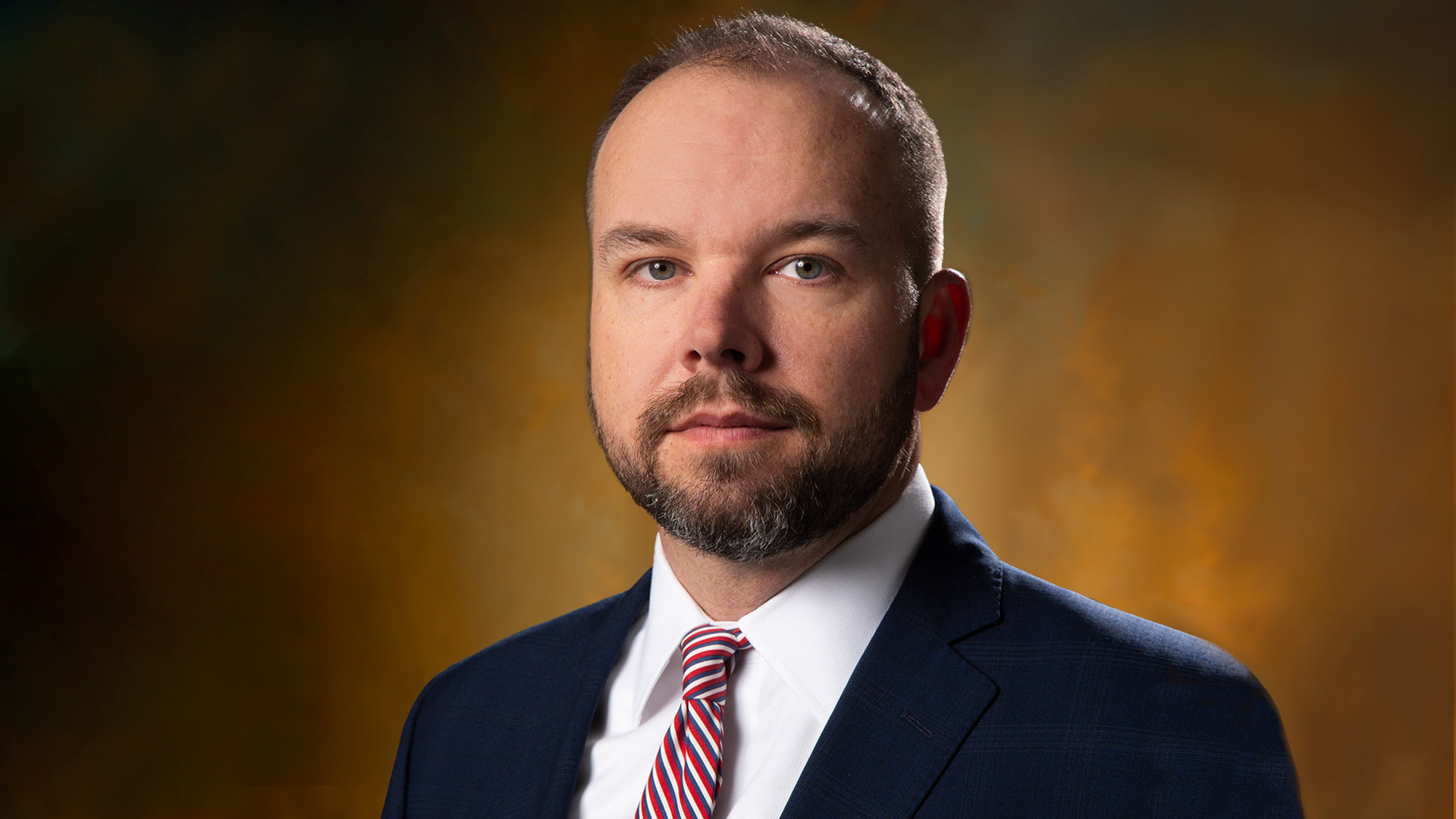
The National Rifle Association Political Victory Fund (NRA-PVF) has officially endorsed former President Donald J. Trump (R) to be the next president of the United States.
Given Trump’s pro-freedom record as president from January 2017-2021, as well as the strong pro-Second Amendment positions he continues to articulate today, this endorsement is hardly a surprise, especially given that the NRA also endorsed Trump in 2016 and 2020. Yet the obviousness of this endorsement shouldn’t obscure its importance—not at a moment in history like this.
America, just now, is standing braced to the political winds with her feet on uncertain ground as she must decide, amidst all the rumble of competing campaigns and media spin and punditry, whether to turn to the hope of individual rights and brighter days for freedom, or to continue down a dark path.
The Biden administration has been leading America into darkness; to increased subjugation of our right to keep and bear arms; to a place where blame for the illegal actions of gang members and others is thrown at the feet of lawfully armed citizens; into increasing crime and a justice system that has been broken by woke policies; and to a place in which the citizenry is purposely being divided against one another based on immutable characteristics, not brought together via shared constitutionally protected rights, such as the Second Amendment.
When he was in the White House, President Donald J. Trump continually backed and tried to augment our Second Amendment freedom.
In the other direction, a possible second Trump administration promises a return to greater freedom. This means old-fashioned empowerment for every citizen who hasn’t lost the right to lawfully own and carry the tools enumerated in the Second Amendment of the U.S. Bill of Rights. In this direction are law and order, individual responsibility and accountability, as true liberty confers a great duty onto citizens.
In 2020, then-President Trump welcomed the NRA into the Oval Office. He held up a copy of NRA’s America’s 1st Freedom, an August issue with his son Eric on the cover, for a photo, and said, “That is a good-looking guy.”
In that exclusive interview, which became the cover story for the November 2020 issue of this magazine, Trump promised to sign national reciprocity legislation—a law that would recognize people have the right to travel with their Second Amendment freedom to any jurisdiction in the United States—should such legislation come to his desk.
And it was so fitting for a president to be holding a copy of America’s 1st Freedom, as this magazine was given its name because first principles begin with the right to defend life from those who would selfishly take the breath from us. This natural right is the most-basic necessity for any person to be truly free. Such is why, clearly and resolutely, the first principle of our freedom begins with the right to keep and bear arms.
As the NRA, from its philosophical foundation to the practical application of this right, is devoutly built upon this first principle, the NRA has, since 1871, been an association of Americans that authoritarians of all variations, foreign and domestic, realize is an impediment to their aspirations; after all, any honest person in any nation who has the temerity to clearly articulate the truth is dangerous to those who want to take the power from the people, and the NRA isn’t any one person. This is an association of millions of freedom-cherishing American citizens.

Thus, is it not surprising that politicians, such as President Joe Biden and certain officials in New York, have directly attacked this civil-liberties association’s right to exist; after all, they must realize that to get the control they covet over the American people, they must first diminish our constitutionally protected freedom.
So, back to this critical election: To say America is standing at a crossroads, with darkening skies in one direction and a brightening horizon in the other, is true no matter what anyone might think of the personalities of the two leading candidates.
Biden, after all, has fomented storms of division. He proclaimed the American firearms industry to be “the enemy” in 2020 and then, in a series of moves designed to disarm the citizenry, he set out to put gun manufacturers and gun stores out of business. He has lied about the Protection of Lawful Commerce in Arms Act (PLCAA), and, when caught lying, has lied again and again. He has blamed good armed citizens for the actions of criminals. He has weaponized federal agencies against this first principle of the U.S. Bill of Rights. He wants to dehumanize individuals by disempowering them in the face of evil. He wants to ban everything from popular semi-automatic rifles to, if we take him at his word, handguns chambered in the ubiquitous 9 mm. He wants to end concealed carry. He would empower and promote frivolous lawsuits designed expressly to bankrupt America’s firearms makers and gun stores. He sees American freedom—not the nation’s rampant crime—as a problem that he says must be massively reduced.
In contrast, former President Donald J. Trump has enhanced and protected the very nature of this constitutionally protected right. Again, when he met an NRA representative in the White House, he noted how many people say that the judges he nominated to the federal courts might just be the greatest extension of his legacy.
Indeed, in his 2020 State of the Union address, then-President Trump promised the American people: “Just as we believe in the First Amendment, we believe in another constitutional right that is under siege all across our country. So long as I am president, I will always protect your Second Amendment rights to keep and bear arms.”
And this is precisely what he did.
Actions speak louder than words, goes the old saying, and this is especially true when it comes to national policy. A president’s words have an impact on what Congress spends its time on for the basic reason that they need to contend with the risk of a presidential veto.

In 2019, for example, the Trump administration issued a statement saying the president would veto two bills then under consideration in the U.S. House of Representatives.
The first bill, then known as H.R. 8, would have imposed so-called “universal background checks” (so-called because criminals by definition won’t abide by such a law) on gun owners by requiring almost every person who wants to, say, try a gun at a range, or borrow a shotgun for a bird hunt or pass down a firearm to a niece or nephew, to first go to a federal firearms licensee and pay to legally transfer the gun. When threatening to veto the bill, the Trump administration said that the legislation was “incompatible with the Second Amendment’s guarantee of an individual right to keep and bear arms.”
The second bill Trump threatened to veto, then known as H.R. 1112, also dealt with federal background checks. It would have allowed the FBI 10 business days (not three) to complete a background check, but, even after those two weeks, the potential buyer would have had to petition the government for the background-check results, and then the government would have had another 10 days to finish—that means nearly a month in total. When making its veto threat public, the Trump administration noted that “allowing the Federal Government to restrict firearms purchases through bureaucratic delay would undermine the Second Amendment.”
Before and after issuing these veto threats, President Trump also publicly noted the obvious dangers of creating so-called “gun-free zones,” as many criminals target them, and talked about the importance of adequately investing in mental-health resources to prevent the few potentially violent mentally ill individuals out there from committing acts of evil.
Trump continually backed and tried to augment Second Amendment freedom. Indeed, early in his first term, several federal agencies reversed course on Obama-era policies that would have taken away citizens’ Second Amendment rights; for example, the Trump administration rescinded (before it went into effect) an Obama-era regulation that would have yanked the Second Amendment rights from any person who checked a particular box on a form submitted to the Social Security Administration. Normally, Americans get due-process protections before the government can take away their Second Amendment rights. This Obama rule, however, was written to simply take away this right from tens of thousands of citizens.
Also, in March 2018, Trump signed the Fix NICS Act into law. This was an effort to strengthen enforcement of existing federal gun laws without expanding them or imposing new restrictions on law-abiding citizens. (A huge weakness of the federal background-check system has long been inadequate reporting from the state and federal agencies that must supply records indicating who is prohibited by law from buying or carrying a firearm.)
The Trump administration also stood behind its promise to protect Second Amendment rights by deeming gun stores and shooting ranges to be “essential businesses” during the COVID pandemic. At the time, several states and jurisdictions ordered gun shops and ranges to shut down. Therefore, as the 2020 riots were taking place in some areas, citizens were not able to purchase guns and ammunition to defend themselves. The federal guidelines from the Trump administration were useful to those who challenged those local closures. (Conversely, just imagine what a President Biden would have done to gun stores and manufacturers during such a period.)

As previously noted, perhaps Trump’s most-enduring legacy with respect to the Second Amendment has been his judicial nominees. Many of these nominees, who became judges and justices, have come to the Second Amendment’s defense. Trump’s three U.S. Supreme Court picks, for example, all voted in New York State Rifle & Pistol Association v. Bruen (2022) that our right to bear arms does extend outside our homes.
Meanwhile, quite a few of Trump’s lower-court picks have also ruled in favor of citizens’ Second Amendment-protected rights; for example, in 2021, two federal appellate court rulings, both written by Trump appointees, struck down restrictions limiting firearms sales to 18-20-year-old adults. In its ruling, the 9th U.S. Circuit Court of Appeals found that California had violated the Second Amendment with a law that prohibited the sale of semi-automatic firearms to 18-20-year-old citizens.
“America would not exist without the heroism of the young adults who fought and died in our revolutionary army,” wrote Judge Ryan Nelson, who was joined by another Trump appointee, Judge Kenneth Lee.
At the 2024 NRA Leadership Forum in Dallas, Texas, last May, Trump said, “We will never give in. We will never give up ... . The great silent majority is rising like never before … . Thank you very much to the NRA.”
This kind of rational defense of Americans’ individual rights is what Trump gave us and what he again promises us. For this fundamentally important reason, the NRA-PVF has again endorsed Trump for president.


































